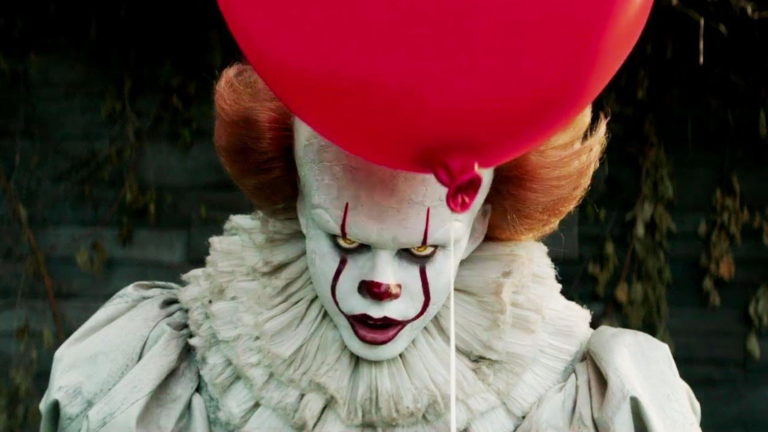By Staff · October 30, 2017

By: Stephen Follows
My name is Stephen Follows and I study the film industry through data and statistics. (I don’t use this as a pick-up line in parties. I’m sure it would work, it’s just that my wife wouldn’t be pleased).
As well as my weekly blog, I also do deep dives into different topics, such as my new 200+ page report into horror films. It is an extensive analysis of the horror genre, covering the entire journey from development to recoupment. If you want to read the full 200+ page report, then click the button below. The report is published on a ‘Pay What You Can’ model, with a minimum of just £1.
Click here to get the horror report.
To celebrate the launch, I have pulled out eight of the most important findings from the report from the point of view of screenwriters.
Across all genres, film production levels have been increasing, but none faster than horror. In 2016, 1,028 horror movies were produced – twice the number made in 2006 (and the 2006 figure was almost four times more than the 1996 figure).
As well as the sheer number of horror movies increasing, horror represents an increasingly large proportion of movie production. Twenty years ago, horror movies accounted for 4% of all movies made, whereas in 2016 they represented 12%.

This is likely due to a number of factors, including:
It’s not just Paranormal Activity that has been performing well – on average, horror movies are the most likely to make a profit when compared to movies of all other genres.

It’s also worth considering that the next most profitable genres (adventure, rom-com, musicals and action movies) typically require considerable resources or well-known actors to succeed, whereas horror movies do not. This increases the suitability of the horror genre for emerging or low-budget filmmakers.
The average age of a horror movie screenwriter (1996-2016) was just over 44 years old – the youngest of any major genre. The majority of horror writers are in their 30s and the most common age was 37 years old.

Wait, wait. I’m sure you read the heading with a cynical, puzzled look. I am not saying that horror movies all have the most creative and unique concepts. This fact actually refers to the source material of horror movies.
75% of horror movies are original concepts, rather than being based on existing works. Thankfully this suggests that the real world is not scary enough to provide a suitable flow of stories to sate horror fans.

I looked at the titles of all horror movies made and found that certain words fall in and out of fashion. The peak decade for the word ‘Ghost’ was the 1940s, ‘Vampire’ peaked in the 1950s, ‘Terror’ in the 1960s, ‘Evil’ and ‘Devil’ in the 1970s, ‘Night’ in the 1980s, ‘Dark’ in the 1990s and it’s been the dawn of ‘Dead’ since then.

Of all the genres, horror is the most immune to bad reviews, with little correlation between what film critics thought of a movie and how financially successful it was.

Horror movie tastes are cyclical, with particular subsets of horror going in and out of fashion. For example, horror movies get increasingly gory and disturbing over time, until the bubble bursts and lighter horror movies return. We are currently in a relative downturn for gory and disturbing movies.
 8. Video on Demand could bring trouble for horror movies
8. Video on Demand could bring trouble for horror moviesSo far it’s all been good news – high profitability, predictable patterns and not having to worry about a film’s quality. But there could be trouble on the horizon for the horror sector.
Reliable VOD data is hard to come by, but the data that is available reveals that horror films perform far worse on VOD than they did on other platforms. So as the DVD and Blu-ray market share continues to drop, horror filmmakers could find that their income streams are badly hit.

 All of these findings came from the newly published Horror Report. The report also contains details on the data and methodology used.
All of these findings came from the newly published Horror Report. The report also contains details on the data and methodology used.
The report is over 200 pages of facts, stats, graphs and charts looking at all aspects of horror movies, including:
The report is available to buy for whatever price you can afford.
Click here to get the horror report.
Stephen is an established data researcher in the film industry whose work has been featured in the New York Times, The Times, The Telegraph, The Guardian, The Daily Mail, The Mirror, The Evening Standard, Newsweek, The News Statesman, AV Club and Indiewire.
He acted as an industry consultant and guest on the BBC Radio 4 series The Business of Film, which was topped the iTunes podcast chart, and has consulted for a wide variety of clients, including the Smithsonian in Washington.
For all the latest from The Script Lab, be sure to follow us on Twitter, Facebook, and Instagram.